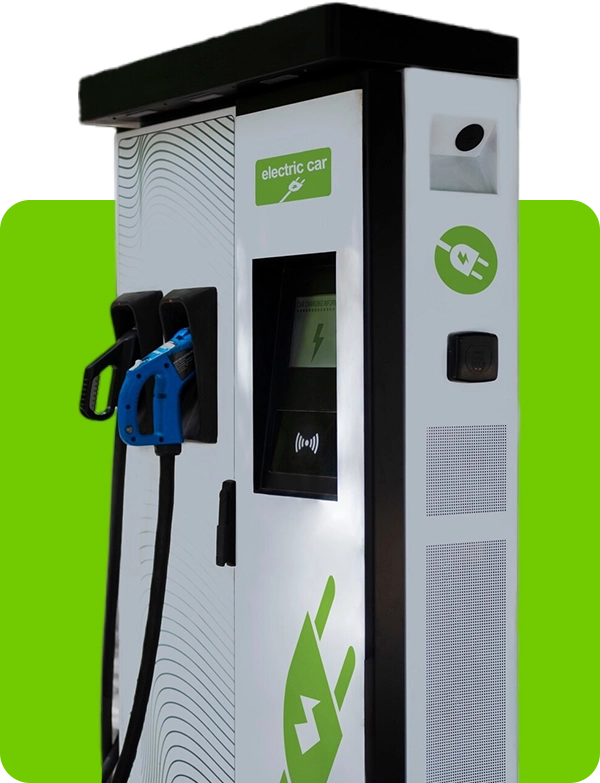An electric vehicle, or EV, is a type of vehicle that is powered by an electric motor using electricity stored in rechargeable batteries. EVs come in various forms, including all-electric vehicles (powered solely by batteries) and plug-in hybrid electric vehicles (PHEVs, which use both batteries and a conventional internal combustion engine).

Most Innovative Award Winner
Sustainable Charging for Every Mile
MY ECOFUSION are leading the charge towards a more sustainable future, offering a thrilling blend of cutting-edge technology, zero emissions, and unparalleled efficiency.
SignUPElectric Vehicle Charging Solutions

Home Charging
A Home Charging Station is an electric vehicle (EV) charging system installed at a residential location, allowing EV owners to charge their vehicles conveniently at home.

Public Stations
Public charging stations play a crucial role in expanding EV adoption by offering convenient, accessible charging solutions for longer trips or when home charging isn't available. Many of these stations are operated by networks like ChargePoint or Tesla Supercharger.

Commercial Systems
Commercial Charging Station is an electric vehicle (EV) charging facility installed at commercial or business locations, such as office buildings, shopping malls, hotels, and restaurants.
“At Ecofusion Energy, we're passionate about making sustainable mobility a reality. Our EV charging solutions are designed to power your journey towards a cleaner and greener future.”
Team EcofusionAdvanced Features
Mobile App Integration
Mobile App Integration for Charging Stations enables electric vehicle (EV) drivers to easily find, access, and manage charging stations through their smartphones
Network Connectivity
Network Connectivity for Charging Stations enables communication between the charging infrastructure, users, and management systems.
User Authentication
User Authentication for Charging Stations ensures secure access to electric vehicle (EV) charging infrastructure.

In-App Payments
In-App Payments for Charging Stations allow electric vehicle (EV) drivers to conveniently pay for charging sessions directly through a mobile application.
Overcurrent Protection
excessive electrical current from flowing through the system, which could otherwise cause damage to the charging equipment or the electric vehicle (EV).
Temperature Monitoring
Temperature Monitoring for Charging Stations is a vital safety feature that ensures the optimal functioning of electric vehicle (EV) charging systems.
Any questions?
Electric vehicles use one or more electric motors for propulsion. These motors are powered by electricity stored in rechargeable batteries. When the vehicle is in motion, the electric motor(s) convert electrical energy from the batteries into mechanical energy to drive the wheels.
Charging times vary depending on the vehicle's battery size, charging equipment, and charging rate. Level 1 charging (using a standard household outlet) typically takes several hours to fully charge an EV.
The range of an electric vehicle depends on factors such as battery capacity, driving conditions, and driving habits. Most modern EVs offer ranges of 100 miles or more on a single charge, with some models exceeding 300 miles per charge.
Electric vehicles can be charged at home using a standard electrical outlet or a dedicated home charging station. Additionally, public charging stations are becoming increasingly common in urban areas, along highways, and at destinations such as shopping centers and workplaces.
Electric vehicles can perform well in cold climates, but extreme temperatures can affect battery performance and range. Preheating the cabin while the vehicle is still plugged in can help preserve battery charge in cold weather. Some EVs also offer features such as battery preconditioning to optimize performance in cold temperatures.
